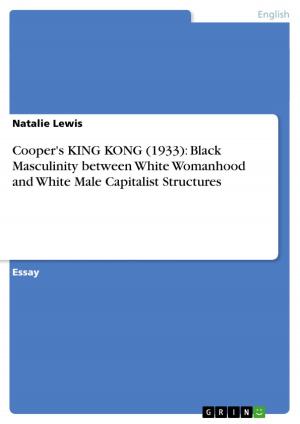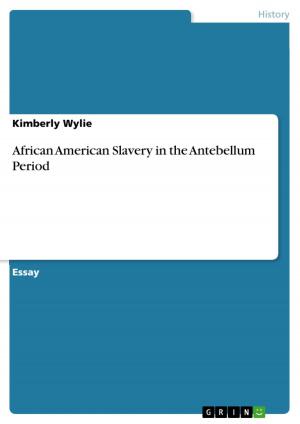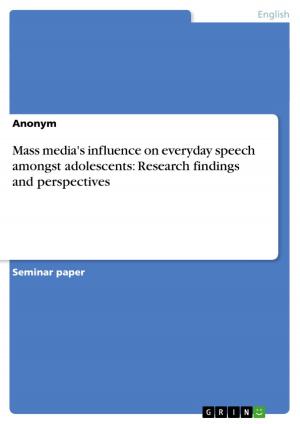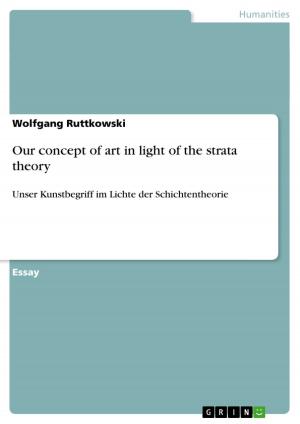Romantic Thoughts in Wordsworth's 'I wandered lonely as a cloud'
Fiction & Literature, Literary Theory & Criticism, British| Author: | Victoria Tutschka | ISBN: | 9783640489503 |
| Publisher: | GRIN Publishing | Publication: | December 9, 2009 |
| Imprint: | GRIN Publishing | Language: | English |
| Author: | Victoria Tutschka |
| ISBN: | 9783640489503 |
| Publisher: | GRIN Publishing |
| Publication: | December 9, 2009 |
| Imprint: | GRIN Publishing |
| Language: | English |
Seminar paper from the year 2009 in the subject English Language and Literature Studies - Literature, grade: 1,0, University of Erfurt (Sprachwissenschaft), course: Romanticism, language: English, abstract: William Wordsworth is known as one of the most influential English Romantic Poet. Born in the year 1770 in Cockermouth, a beautiful landscape of the English Lake District, his whole life and work was characterized by the love of nature. Yet in his early ages he and his beloved sister Dorothy were taught important poetry of Shakespeare and Milton by their rarely present father. William was treated harsh by his relatives, when he had to stay at his mother's home in Penrith as a teenager, but as a result he found comfort, tranquility and happiness in exploring the beauty of the nature on his own. In the first years of the 1790s he visited France and was impressed by the revolutionary force of the Republican movement. During his stay he fell in love with Annett Vallon, a French woman and got a daughter with her. Due to the developing British-French war, he had to leave France soon and saw Anett and their daughter seldom again, but always stayed in contact with them. In 1793 Wordsworth wrote the first version of the so-called manifesto of English Romantic Criticism: the 'Preface to Lyrical Ballads' with 'experimental' poems. Together with his friend, the poet Samuel Taylor Coleridge, he produced the first of four editions of 'Lyrical Ballads' in the year 1798. In this central Romantic work, he defines poetry as ' the spontaneous overflow of powerful feelings from emotions recollected in tranquility.'.
Seminar paper from the year 2009 in the subject English Language and Literature Studies - Literature, grade: 1,0, University of Erfurt (Sprachwissenschaft), course: Romanticism, language: English, abstract: William Wordsworth is known as one of the most influential English Romantic Poet. Born in the year 1770 in Cockermouth, a beautiful landscape of the English Lake District, his whole life and work was characterized by the love of nature. Yet in his early ages he and his beloved sister Dorothy were taught important poetry of Shakespeare and Milton by their rarely present father. William was treated harsh by his relatives, when he had to stay at his mother's home in Penrith as a teenager, but as a result he found comfort, tranquility and happiness in exploring the beauty of the nature on his own. In the first years of the 1790s he visited France and was impressed by the revolutionary force of the Republican movement. During his stay he fell in love with Annett Vallon, a French woman and got a daughter with her. Due to the developing British-French war, he had to leave France soon and saw Anett and their daughter seldom again, but always stayed in contact with them. In 1793 Wordsworth wrote the first version of the so-called manifesto of English Romantic Criticism: the 'Preface to Lyrical Ballads' with 'experimental' poems. Together with his friend, the poet Samuel Taylor Coleridge, he produced the first of four editions of 'Lyrical Ballads' in the year 1798. In this central Romantic work, he defines poetry as ' the spontaneous overflow of powerful feelings from emotions recollected in tranquility.'.















